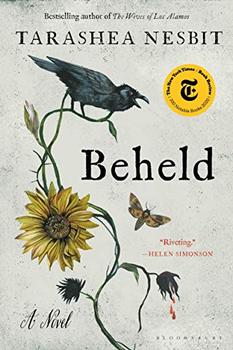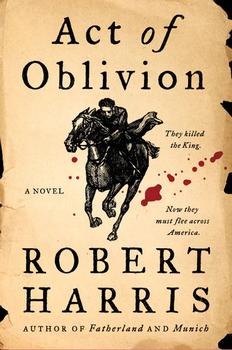Summary | Excerpt | Reading Guide | Reviews | Beyond the book | Read-Alikes | Genres & Themes | Author Bio

Much like her debut novel The Wives of Los Alamos, TaraShea Nesbit's Beheld imagines a familiar historical narrative from the perspectives of those who are often relegated to the background in the official version. This time, her focus is on the women and indentured servants who came to the "New World" on the first ships and struggled to survive and make lives for themselves and their families in Plymouth under exceedingly perilous circumstances. It's an admirable project, as these perspectives are valuable and critical to a complete understanding of the events of the first pilgrims. It's also, thanks to Nesbit's acute rendering of human psychology and emotional depth, eminently fascinating.
Beheld is set in 1630 and narrated alternately by several key figures at Plymouth, but most notably Alice Bradford, wife of Governor William Bradford, and Eleanor Billington, who came to Plymouth with her husband John, both as indentured servants. The Anglican Billingtons seethe with resentment toward the Bradfords and the other pious Puritans, whom they view as unkind, holier-than-thou hypocrites who fail to practice what they preach. This resentment, we are told from the beginning, leads to the first murder among the Plymouth settlers. But there's another story as well, that of Alice and her guilt over past choices, her grief over the death of her best friend (and William's first wife) Dorothy several years earlier on the Mayflower, and her struggle to conform to the inflexible roles and expectations placed upon her as the pilgrims fashion a new society from scratch.
Despite the constant, looming dread established by the promise of a murder, it's Alice's plight and Eleanor's rage that give Beheld its electricity. Alice must be the dutiful and silent governor's wife, agreeing with her husband's every decision despite the fact that she is obviously smarter than him and senses tension mounting in the colony long before it explodes into violence. Through Alice's thoughts, we also gain a sense of who Dorothy was and how she seems to have succumbed to the pressures placed upon her before she could even make it to Plymouth. From a metaphorical point of view, Dorothy's death can be seen as the colony's first murder, rather than the one that takes place toward the end of the novel.
Eleanor, meanwhile, grieves the loss of a son and harbors a grudge toward the Bradfords and the other families that seem to dismiss and malign those who came to Plymouth as servants. Where Alice's pain translates into an abiding sadness, Eleanor's is pure, white-hot fury. She came to the New World believing she would have a better life, rather than dying on the streets of London from syphilis as her mother had done. Eleanor and John refuse to see themselves as beneath the Puritans in the social hierarchy of the settlement, and they are both punished greatly for it. Nesbit depicts these characters' anger and ambition to rise above their circumstances with vivid clarity.
While the book does seem extensively researched and the central premise is a true story, Nesbit's is an exaggerated version in which sex, murder and class hostility are palpable on nearly every page. Historians may take issue with some of the author's liberties, but most lay readers will likely welcome the added drama and intrigue. It's also worth noting that the plot is something of a slow burn—as mentioned, the actual murder that is foretold and foreshadowed relentlessly throughout does not occur until the late stages. However, the psychological suspense is, overall, very captivating.
Beheld is a thrilling, class-conscious take on the narrative of Plymouth that introduces marginalized voices whose stories are rarely told.
![]() This review was originally published in The BookBrowse Review in March 2020, and has been updated for the
November 2021 edition.
Click here to go to this issue.
This review was originally published in The BookBrowse Review in March 2020, and has been updated for the
November 2021 edition.
Click here to go to this issue.

If you liked Beheld, try these:

by Ivy Pochoda
Published 2025
A deliciously dark horror reimagining of a Greek tragedy, by Ivy Pochoda, winner of the LA Times Book Prize.

by Robert Harris
Published 2023
From the bestselling author of Fatherland, The Ghostwriter, Munich, and Conclave comes this spellbinding historical novel that brilliantly imagines one of the greatest manhunts in history: the search for two Englishmen involved in the killing of King Charles I and the implacable foe on their trail - an epic journey into the wilds of seventeenth-...
Your guide toexceptional books
BookBrowse seeks out and recommends the best in contemporary fiction and nonfiction—books that not only engage and entertain but also deepen our understanding of ourselves and the world around us.